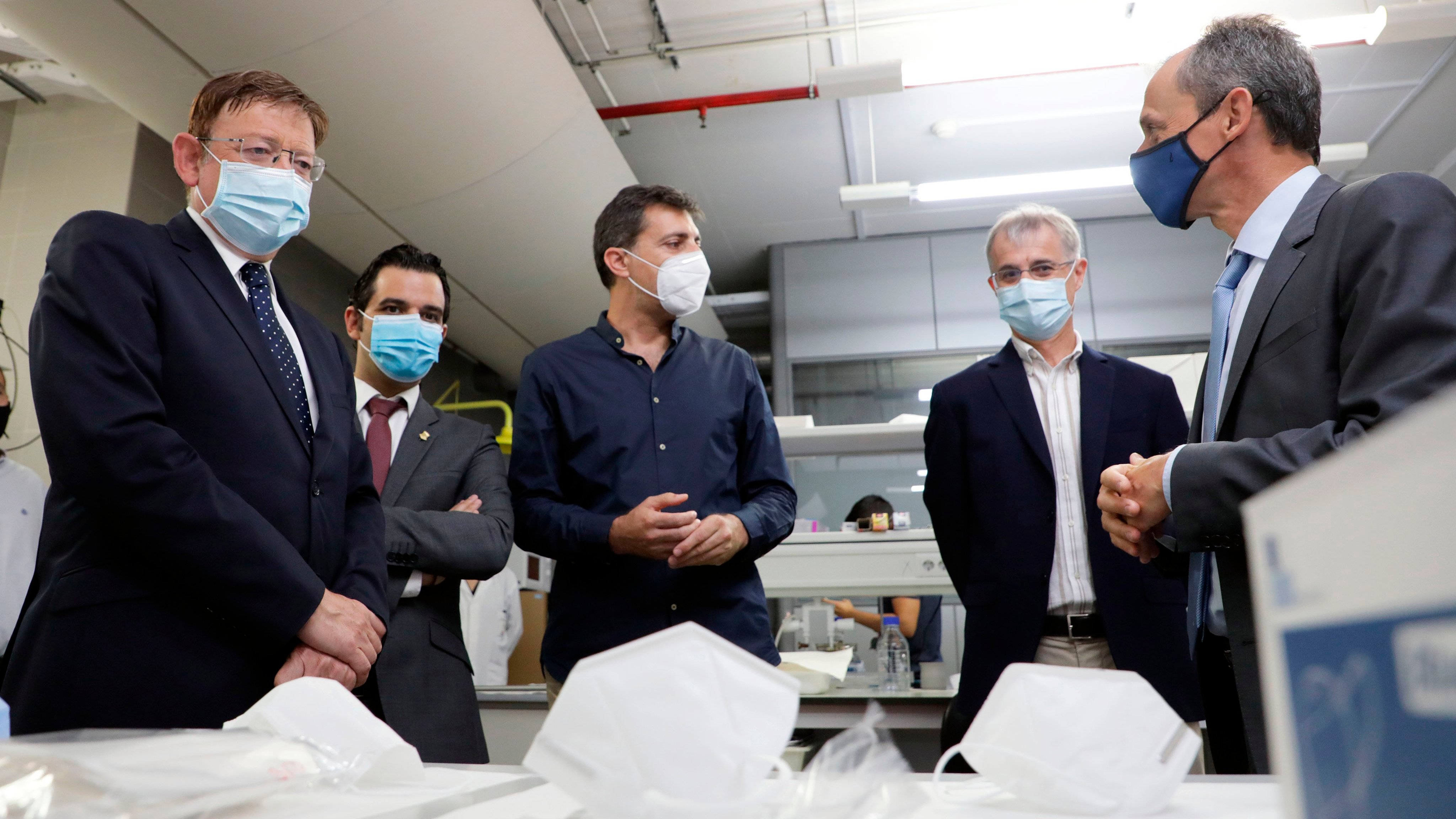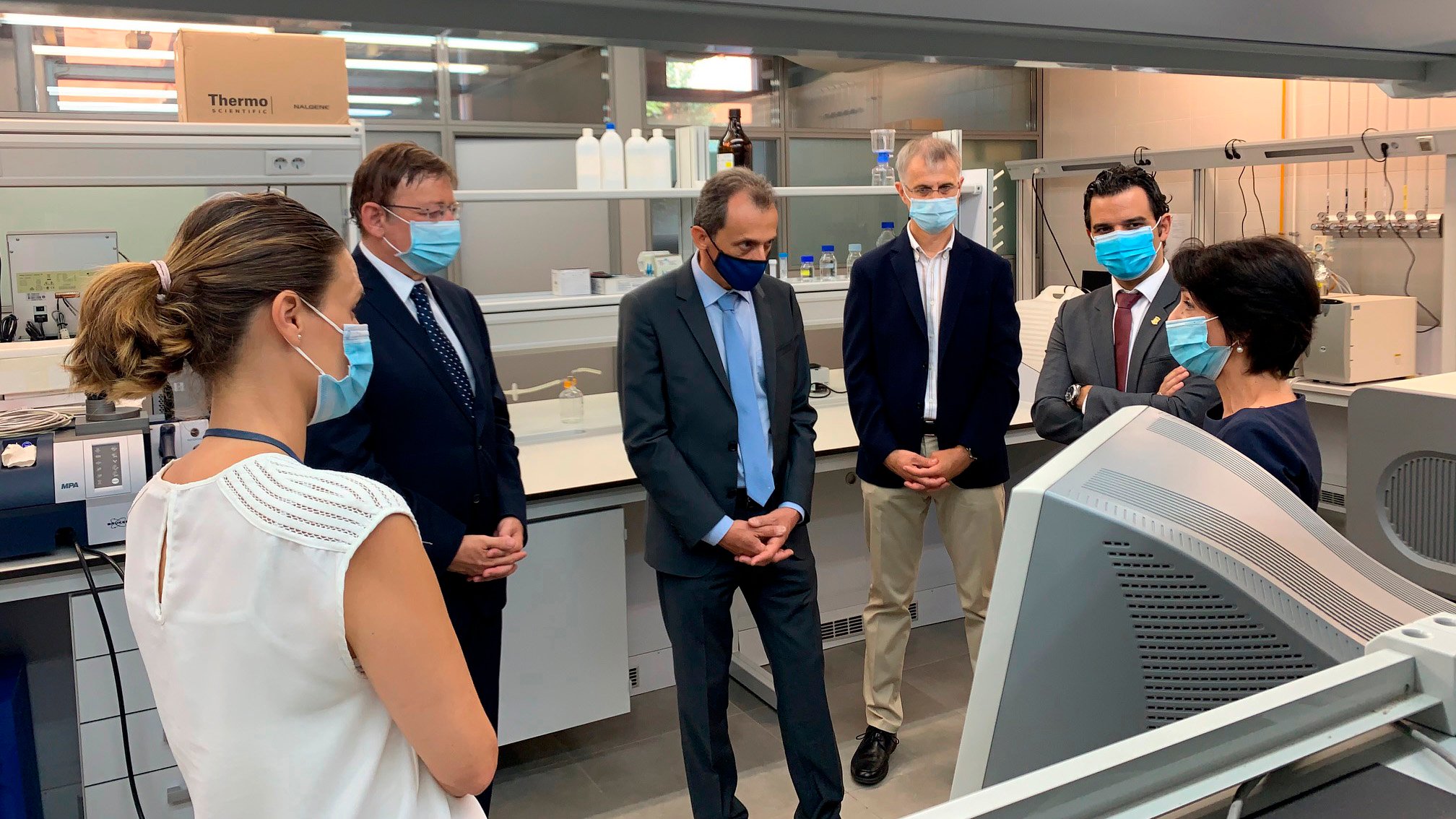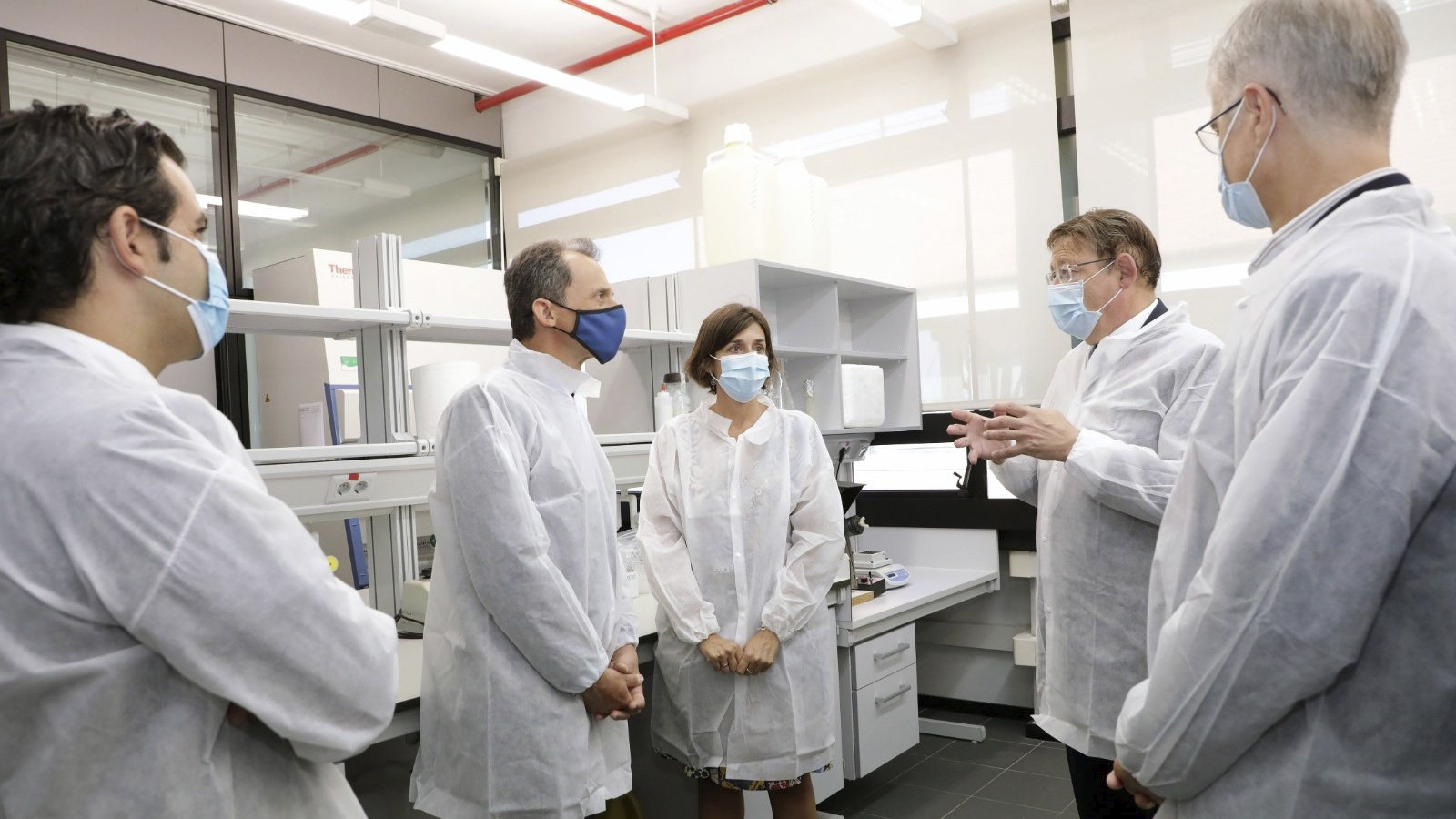The detection of viral RNA in wastewater to monitor the presence of the virus or the development of new materials for masks are two of four projects led by IATA-CSIC in the search for solutions to combat the health crisis caused by COVID-19
The Minister of Science and Innovation, Pedro Duque, and the President of the Generalitat Valenciana, Ximo Puig, visited the facilities of the Institute of Agrochemistry and Food Technology (IATA-CSIC), a center of the Spanish National Research Council located in the University of Valencia Science Park.
Duque and Puig, along with the mayor of the town, Juan Antonio Sagredo, have known, guided by the director of the center, Jose F. Marcos, the research that is currently being carried out to detect viral RNA in wastewater. This project, led by the CSIC researcher Gloria Sánchez, consists of the development of a PCR molecular analysis system that is already being used to alert the presence of the SARS-CoV-2 in a community from the study of its wastewater. The analyses have also shown that the disinfection treatments in the treatment plants are effective in eliminating the presence of the virus.
Next, the authorities have visited the Laboratory of New Materials and Nanotechnology, a space of IATA-CSIC dedicated these days to the development of new materials based on nanotechnology, biodegradable and viricidal, to be integrated in protection masks against the new coronavirus. The research group carrying out this work is led by the CSIC scientist José María Lagarón, in collaboration with the spin-off company Bioinicia. These materials, filters and masks are already in large scale production and their commercialization has begun.

The researcher José María Lagaron, together with the director of IATA-CSIC, Jose F. Marcos, shows the biodegradable masks. Source: IATA-CSIC
The tour has also included a visit to the PCR Thermal Cyclers Laboratory, where they have been informed of two other projects related to the coronavirus. One of them is the project led by Yolanda Sanz, which aims to determine the relationship of the individual's intestinal microbiome with the virus infection rate and its severity, and to identify the immunological mechanisms by which the microbiome could confer protection or susceptibility to infection. This information will improve the prediction of risk and prognosis of infection, as well as the effectiveness of therapies.
SARS-CoV-2 in breast milk
On the other hand, the project led by M. Carmen Collado aims to detect SARS-CoV-2 and antibodies in breast milk, to study its possible transmission to the newborn and the effects on the health of the child and the future adult. The results will contribute to the improvement in the clinical management of nursing mothers infected with the new coronavirus in relation to the health of their children.

The researchers M. Carmen Collado and Yolanda Sanz explain their projects to the authorities. Source: IATA-CSIC
"The experience and results provided in this crisis are another example of the need to support and adequately finance public and quality science in order to be prepared for any type of contingency, as well as to provide our public research system with the flexibility and capacity necessary to respond to society's demands based on scientific knowledge," emphasized IATA's director, Jose F. Marcos.
Part of these initiatives are funded by the Interdisciplinary Thematic Platform Global Health of the CSIC and the call for the Valencian Innovation and Research System funded by the Ministry of Innovation, Universities, Science and Digital Society of the Generalitat Valenciana.


